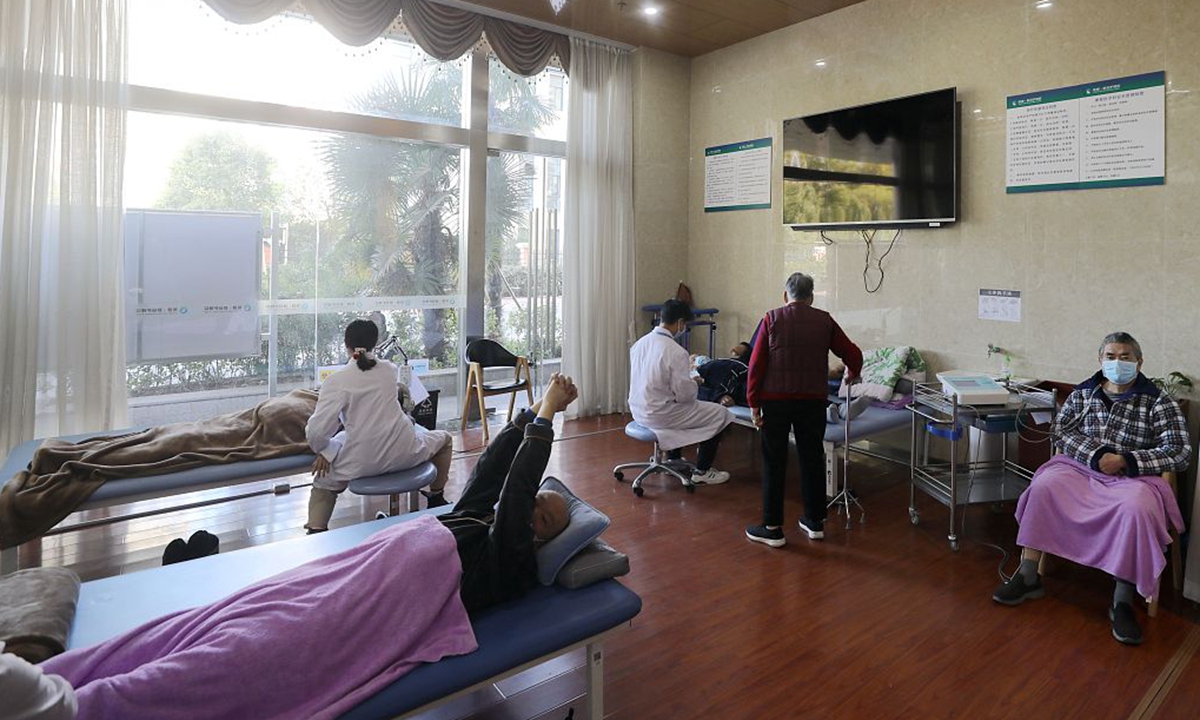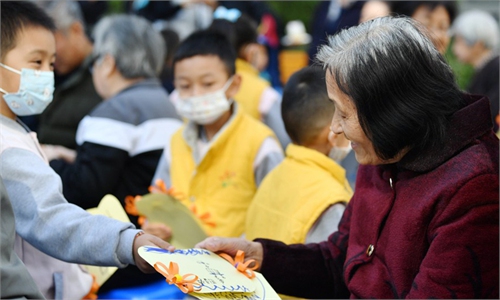China publishes guidelines to enhance the sense of happiness and security of the aging population

A care center for the elderly in Hefei, East China's Anhui Province Photo: VCG
In order to effectively address China's aging population, the country issued a set of guidelines on Wednesday on strengthening work on the senior population to enhance the sense of happiness and security of the elderly.
According to the Seventh National Population Census, as of November 1, 2020, the elderly population aged 60 and above in China was 264.02 million, accounting for 18.7% of the total. It is estimated that during the 14th Five-Year Plan (2021-25) period, the elderly population in China will exceed 300 million, accounting for more than 20 percent of the total which will mark China's transformation into a moderately aging society.
According to the national guidelines, the authorities should give full play to its leading role in promoting the work on aging population with the participation of the public and the whole people to provide basic public services.
Market mechanisms are encouraged to provide the aged population diversified products and services, according to the guidelines.
More attention should be paid to the roles of families and individuals in providing care for the elderly, promoting the participation of each person in programs for seniors.
In combination with the implementation of the rural revitalization strategy, the guidelines request related authorities to strengthen the development of institutions and facilities for the elderly in rural areas.
Public institutions should give priority to seniors with financial difficulties who have a mental or physical disability, are widowed or have made important contributions to society.
The guidelines also urged the related authorities to formulate policies for the management of service fees collected in advance by geriatric care institutions and strictly prevent money laundering and fraud.
A list of basic age care services should be established, said the guidelines. The list should clearly define the service target, content, standard and expenditure responsibility, and be dynamically adjusted in light of economic and social development.
By the end of 2022, a comprehensive capability assessment system for the elderly will be established and its results will be recognized across departments in the country, said the guidance.
The coverage of family doctor contracted services for the disabled, seriously ill, and low-income seniors should be increased and the quality of services should be improved. Also, local authorities should expand the scope of home-based medical services, such as home sickbeds and door-to-door visits, and reimburse relevant medical expenses in accordance with regulations, The community-level medical and health institutions should also provide quality traditional Chinese medicine services for the elderly.
The guidelines urged to strengthen the construction of national geriatric medical centers and establish a number of regional medical centers and geriatric departments in general hospitals.
By 2025 the proportion of geriatric departments in secondary and above general hospitals should reach over 60 percent.
By the end of 2025, every county should have more than one institution providing services for the extremely poor with medical care.
Qualified family members of the disabled elderly, who participate in nursing and other relevant vocational skills training, shall be given subsidies according to regulations, said the guidelines.


